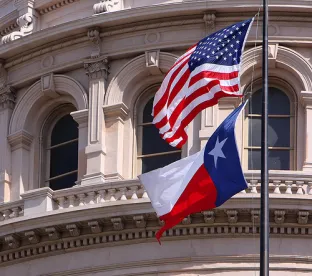The Texas Legislature adjourned sine die on May 27, 2019, and the governor’s veto period ended June 16, 2019. Now that the dust has settled, it is clear that the Texas Legislature passed more pro-consumer health care bills than in recent memory. For the most part, stakeholders from across the health care industry worked together alongside legislators to give consumers some major victories. This GT Alert provides a recap of the major pro-consumer health care bills signed into law from Texas’ 86th legislative session.
Ending Surprise Medical Bills and Their Negative Impact on Consumers
SB 1264 by Sen. Hancock and Rep. Oliverson (effective 9/1/2019)
-
Essentially ends the practice of surprise billing in Texas by prohibiting out-of-network providers from sending patients bills for an amount greater than the applicable copayment, coinsurance, or deductible under the allowed amount by the health plan. This applies to out-of-network providers for emergency services, facility-based services at a network hospital, and lab and diagnostic services from a network service. The bill also requires health plans to pay out-of-network claims for emergency care at an agreed rate or a usual and customary rate under the Texas Employees Group Benefits Act, the Texas Public School Retired Employees Group Benefits Act, or the Texas School Employees Uniform Group Health Coverage Act.
-
The bill requires written notice by a health plan in the explanation of benefits given to the patient and provider and prohibits billing the health plan enrollee for an amount greater than the required copayment, coinsurance, or deductible, which must be based on the amount allowed and payable by the health benefit plan or a modified amount as agreed to with the provider, and not based on any additional amount owed to the provider under an out-of-network claim dispute resolution. The bill also holds harmless an enrollee for financial responsibility for the dispute resolution amount.
-
The bill provides for certain mediation options between the provider and health benefit plan and also includes provisions for mandatory binding arbitration for certain providers and health benefit plans to determine the amount owed by the plan to the provider when in dispute, but without involving the patient/enrollee.
SB 1037 by Sen. Taylor and Rep. Lucio (effective since 5/31/19)
-
Prohibits consumer credit reporting agencies from including medical debt on a patient’s credit report if the patient had health insurance coverage when the health care service was rendered and if the collection is related to an outstanding balance bill, meaning not a copayment, deductible, or coinsurance. This applies when the health care service and the resulting medical debt is from an emergency care provider or a facility-based provider for an out-of-network benefit claim.
Transparency of Freestanding Emergency Rooms in Texas
HB 2041 by Rep. Oliverson and Sen. Taylor (effective 9/1/2019)
-
Creates greater transparency of freestanding emergency rooms (FSER) in Texas. FSERs have proliferated in Texas, especially in urban and suburban areas. They may be a good option for some patients, but many times the FSERs say they accept insurance plans when they are not in-network, and may not inform patients that they will receive an additional bill for services received that are not covered by health insurance.
-
Mandates strong transparency requirements for FSERs to ensure Texas consumers can make informed decisions about their care. The bill requires FSERs to provide written disclosures on pricing and network status on their websites and at the time of service. The bill also prohibits FSERs from using language that may be confusing to consumers about network status and does not allow the display of a health plan logo or name if that facility is not in-network with that plan.
HB 1941 by Rep. Phelan and Sen. Watson (effective 9/1/2019)
-
An anti-price-gouging bill related to FSER.
-
Allows the Texas attorney general to take action against FSERs that charge patients more than 200% of average charges for emergency care in the same area. This includes FSERs that provide emergency care at an “unconscionable” price. The bill also allows for the award of reasonable attorney’s fees and costs incurred by the attorney general’s office in such an action.
HB 1112 by Rep. Sarah Davis and Sen. Kolkhorst (effective 9/1/2019)
-
Requires FSERs that are no longer in operation to remove signs so as not to confuse the public. While hospitals have similar requirements to remove signage if they are no longer in operation, the law did not previously apply to FSERs, creating yet another issue of consumer confusion by FSERs.
-
Provides enforcement authority to the Department of State Health Services to petition a district court due to violations that create an immediate threat to the health and safety of patients.
Drug Price Transparency for High-Cost Pharmaceuticals
HB 2536 by Rep. Oliverson and Sen. Hancock (effective 9/1/2019)
-
Requires drug companies to report drug price increases and provide an explanation for significant price hikes.
-
When a drug company raises the price of a drug 15% or more in one calendar year, or 40% over three years, it must report the increase and provide an explanation for it.
-
Pharmacy Benefit Managers (PBMs) and health care plans also must report annually on PBMs’ aggregated rebates, fees, and “price protection payments,” for the 25 most prescribed drugs, the percentage increase in annual net spending for drugs, and the percentage increase in premiums due to drugs.
-
The bill applies retroactively, so drug companies, PBMs and health care plans must report the same for 2017 and 2018, as well as for 2019 going forward.
-
The bill also requires the Texas Health and Human Services commissioner to establish a website to provide drug pricing information to the public.
Many bills were filed in Texas’ 2019 legislative session involving health care, and specifically focused on consumer protection. The summaries above represent the most significant of the bills that actually passed and were signed in to law, but there are additional bills that passed and became law that we are happy to provide information on if interested. Some bills that didnot pass this session may become the subject of interim studies, to be discussed before the Texas Legislature meets again in January 2021. Please reach out if there is something you are interested in following.




 />i
/>i

